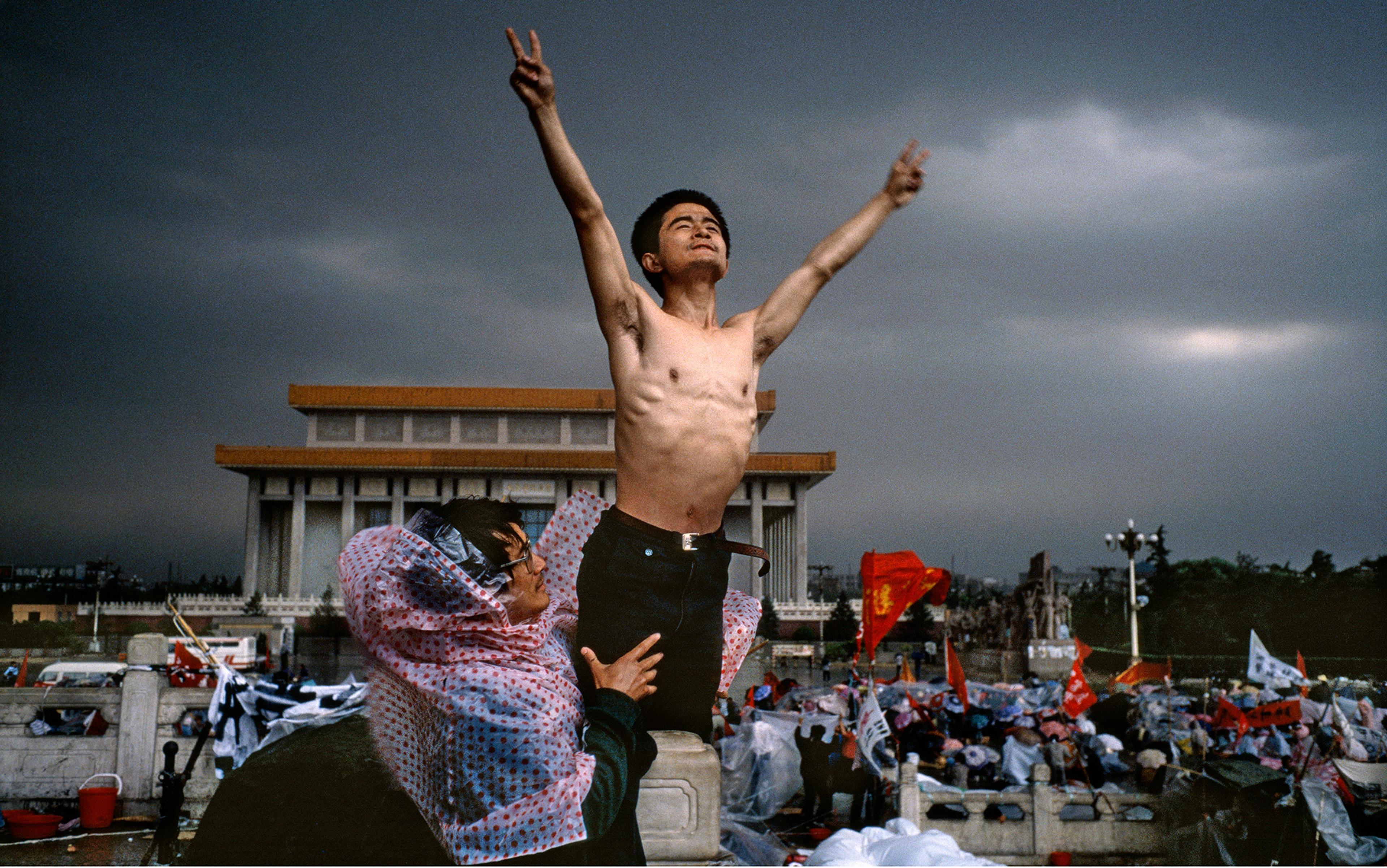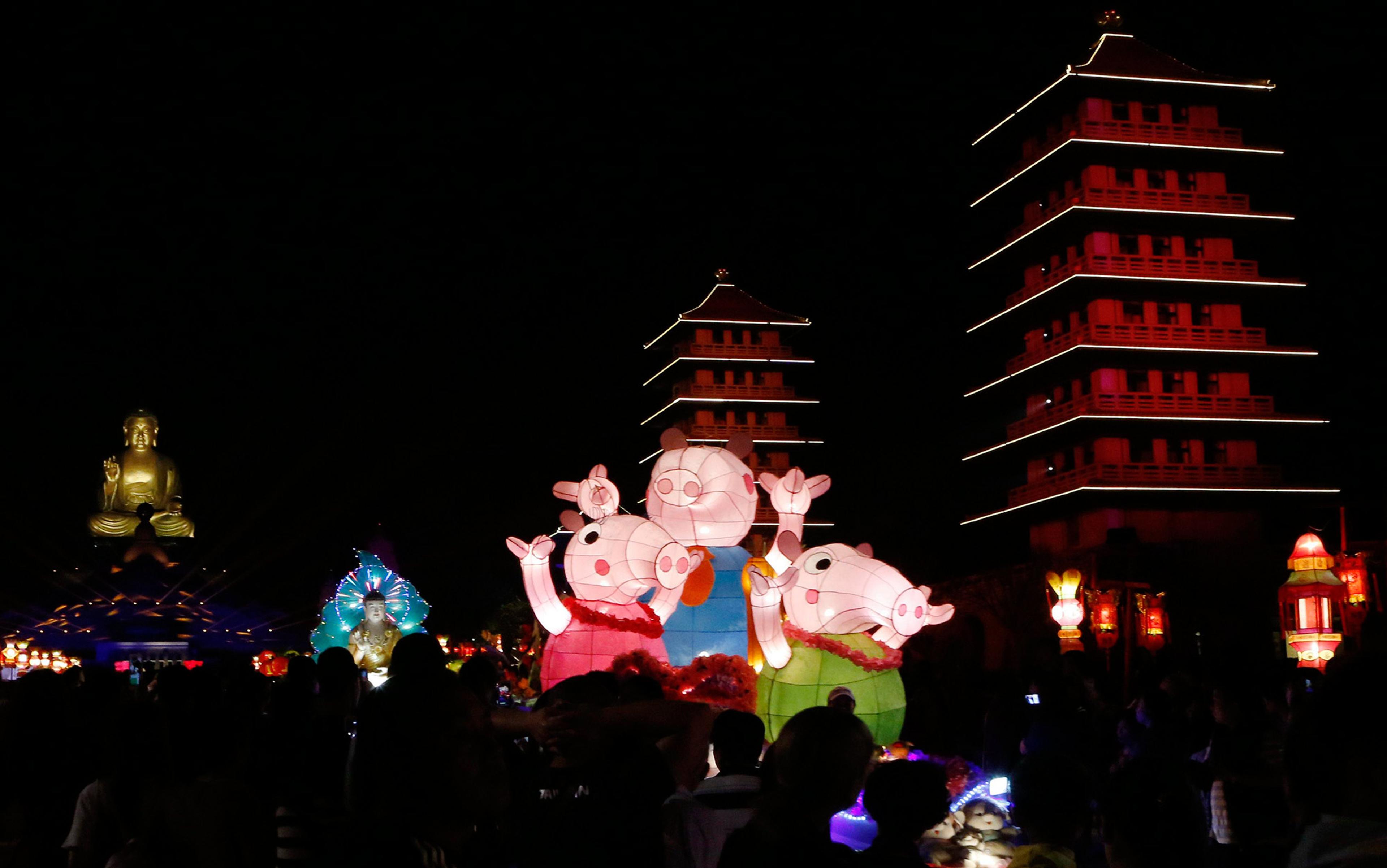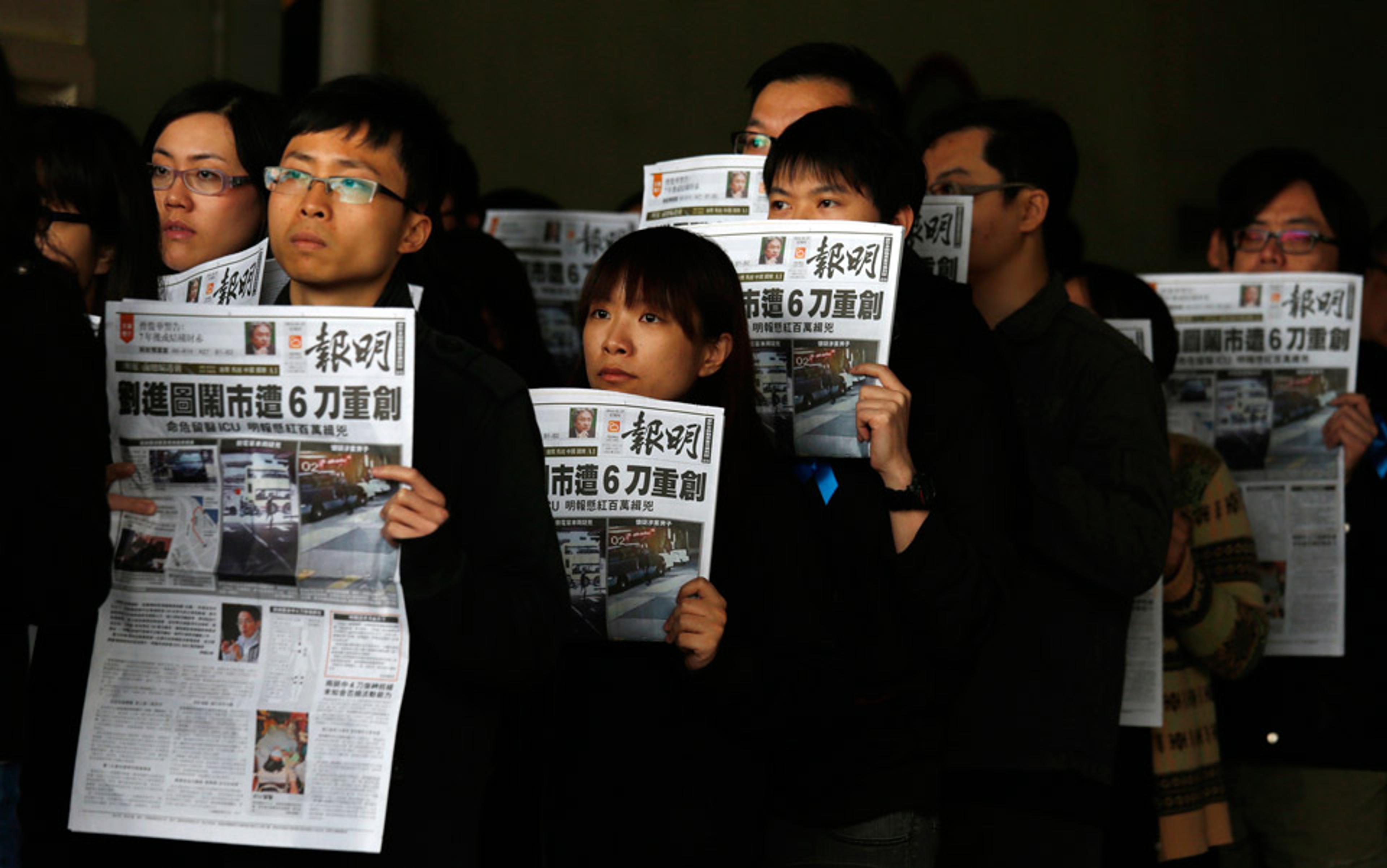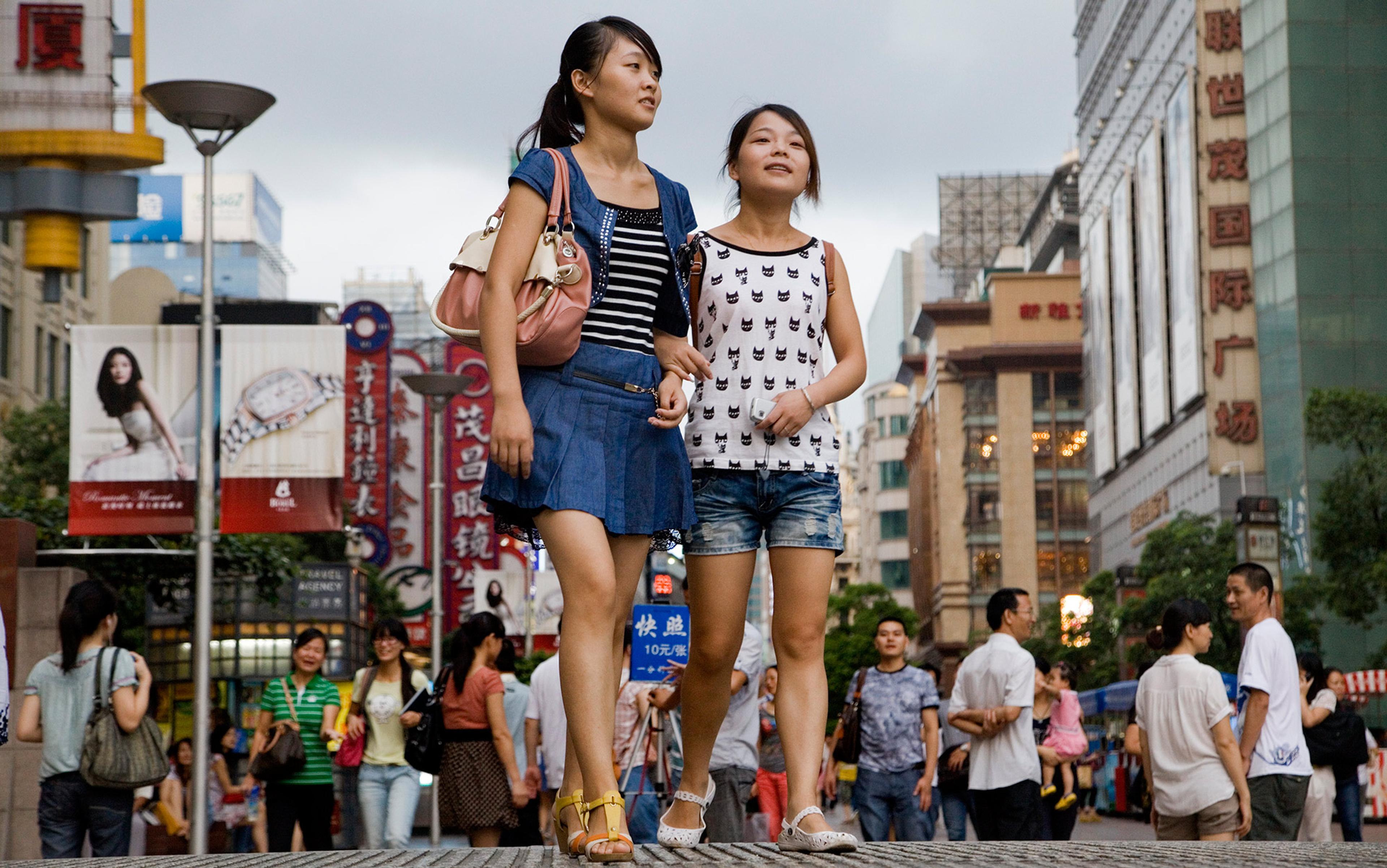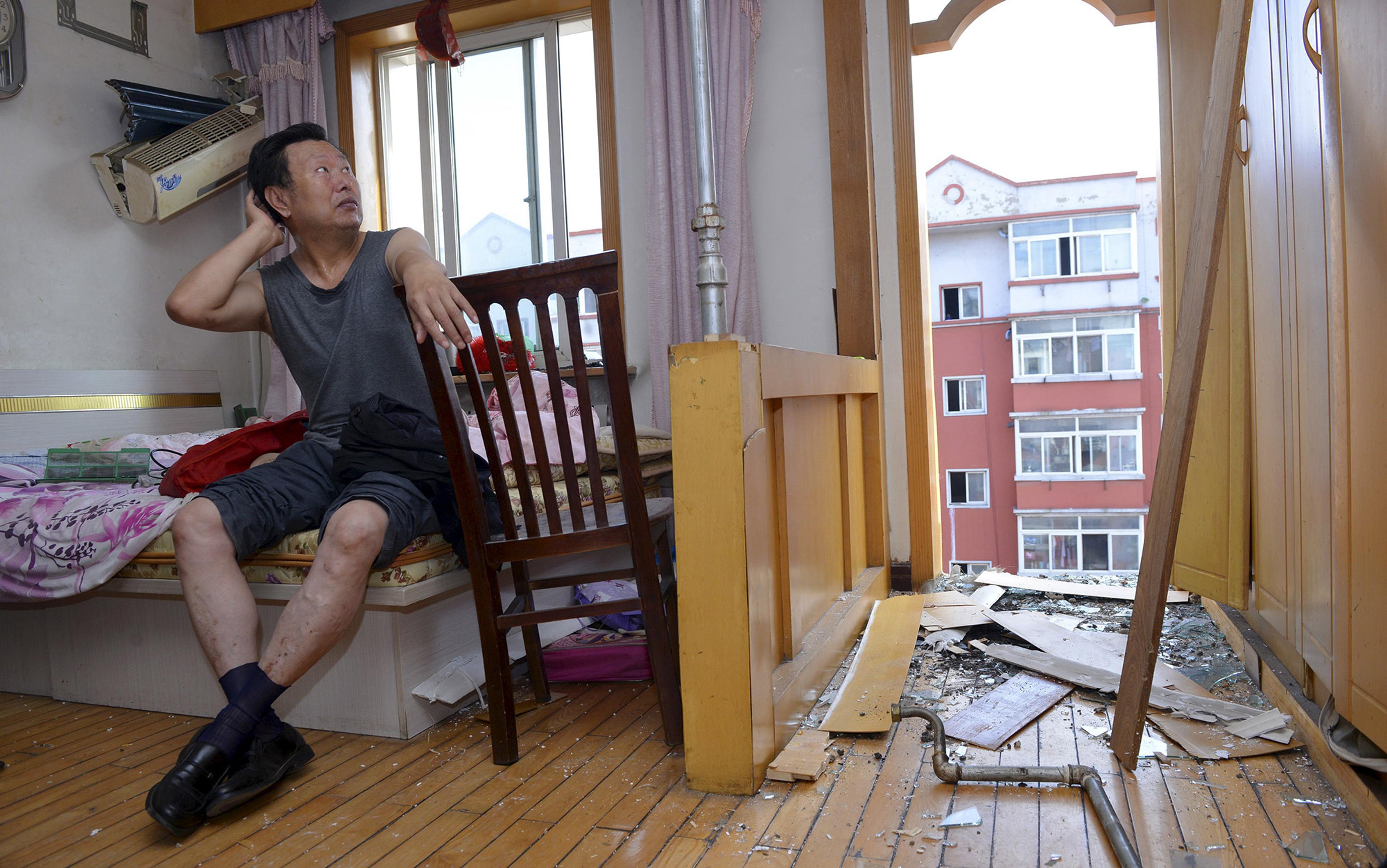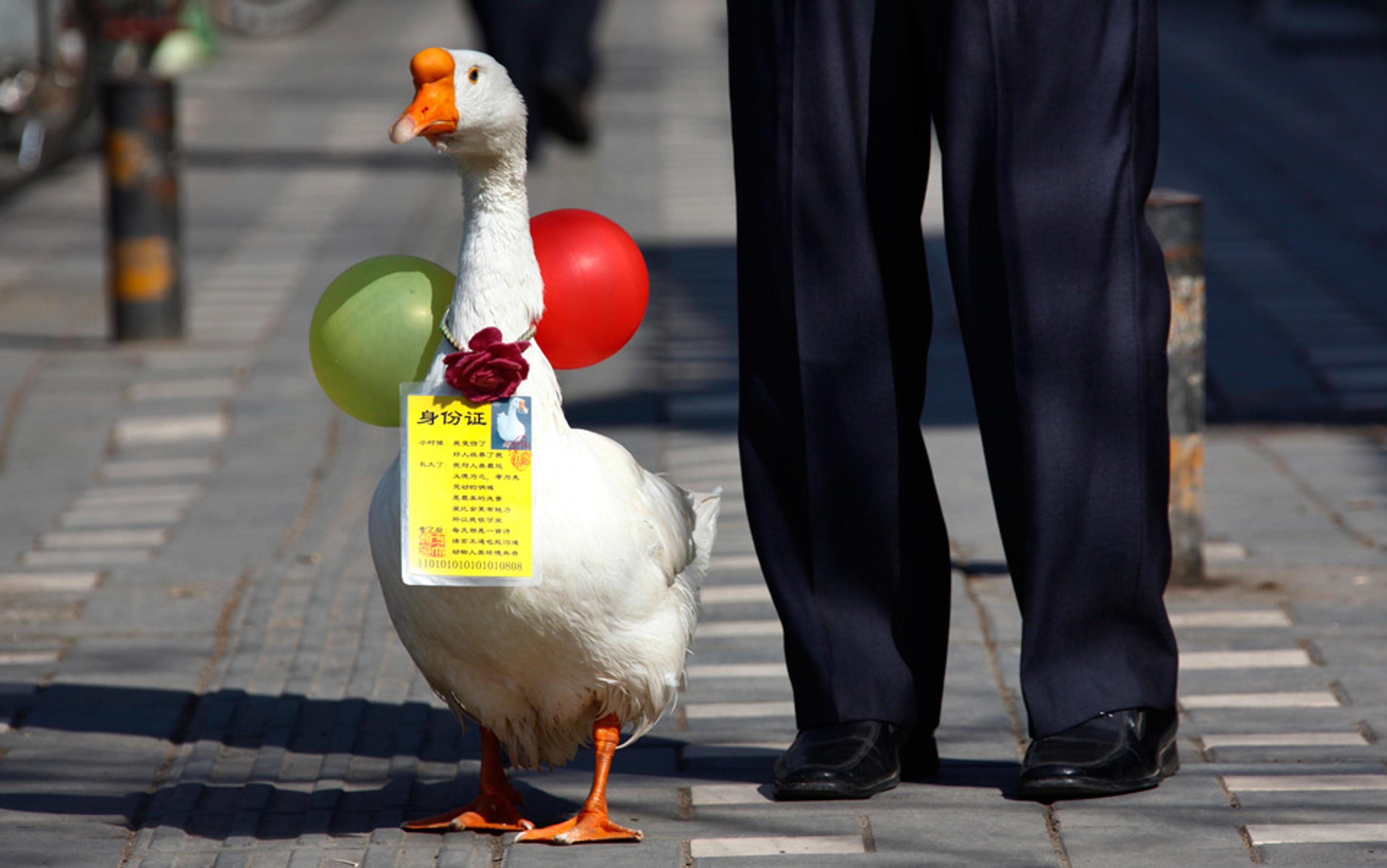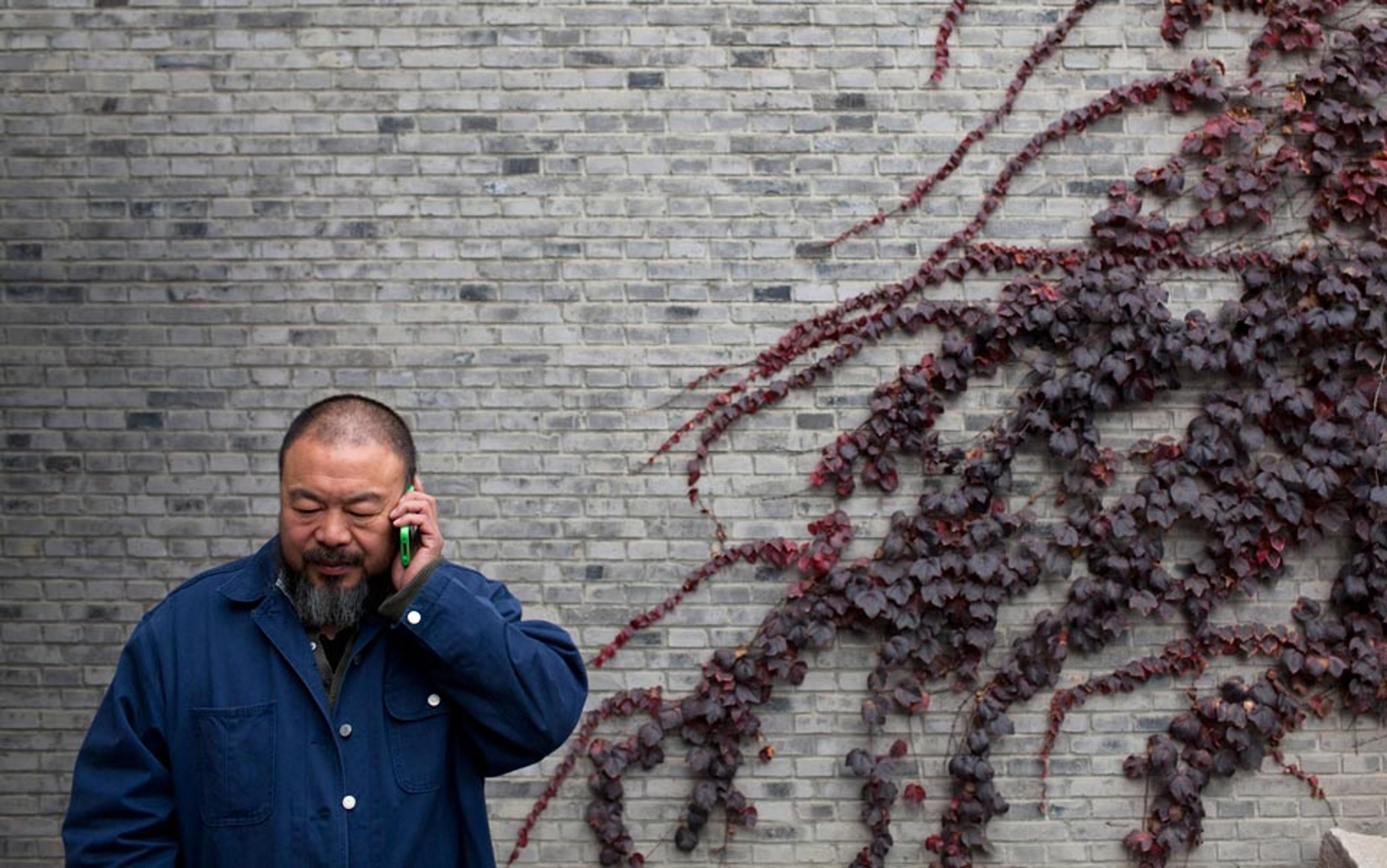When I first read the Chinese edition of Allen Ginsberg’s Howl in 1988, I was a skinny 15-year-old girl who had lived all her life in a southern Chinese province surrounded by stubborn bamboo mountains. I was shocked by its opening lines, even without understanding them fully: ‘I saw the best minds of my generation destroyed by madness, starving hysterical naked…’. I repeated the three adjectives: starving, hysterical, naked. Beside me was my brother, who had read the whole poem already. So I asked him: ‘starving and naked, are Americans like our hungry and poor peasants without clothes to wear?’ He answered me dismissively: ‘Are you stupid, or what? America is the richest place in the whole world! The poem’s about spiritual poverty.’ He strode off to his room with a newly obtained copy of On the Road.
Alone, I chewed over the poem, line by line. At that time, like my brother, I had been falling in love with any sort of Western literature I could lay my hands on in Zhejiang province. Vasily Grossman’s Life and Fate was also translated that year. Intellectual youth, fed on classical Chinese legends such as Dream of Red The Chamber, suddenly discovered new vocabularies from the West. Everyone was ravenous.
My father, who had recently been promoted to the position of state painter in the local town bureau in compensation for his sufferings in labour camps during the Cultural Revolution, had all these literary magazines and Western music records in his office – chained to the shelves so that no one could steal them. Every day after school my brother and I would go to his office, just to read or look at this stuff from the West. My brother told me that Ginsberg had visited China and had spent a month touring and lecturing in our country. All the elite youth would have read his new poem written during the China visit: One Morning, I Took a Walk in China. What a cool title! I dreamed that one day I would write a poem entitled One Morning, I Took a Walk in America.
The following year, abrim with idealism, my brother left our typhoon-ridden hometown to study in Beijing and quickly found himself caught up in the protests on Tiananmen Square. At home, we followed events closely on our newly bought black-and-white television set. Hundreds of thousands of university students occupied the square, calling for democracy and shouting the slogans of their manifestos in front of Mao’s mausoleum, addressing the then-General Secretary Zhao Ziyang.
The whole nation was behind the students; even the peasants of my hometown stood in front of the television, nodding their heads and saying: ‘I bet your son is there on the square. He thinks like Mao and he ought to be there!’ A few weeks later the hunger strikes began. Then in early June, Deng Xiaoping decided to put a stop to things. The party authorities declared martial law and mobilised 300,000 troops from the People’s Liberation Army. First there were machine guns, then tanks: the movement turned into a war.
My parents worried greatly about my brother. My mother kept calling his student dormitory but the line was always busy. A week before the massacre, they finally reached him. His throat dry, he informed us that he had joined the revolution, explaining that he had been raising banners and shouting slogans for weeks. He talked in a breathless torrent with no time for domestic questions. Then he hung up before my parents could respond.
The last news images we received in Zhejiang province were of the tanks rolling in. Suddenly, Tiananmen Square became silent and mournful; bodies sprawled on the ground, blood stained its bricks, tanks burned, banners lay destroyed, the sea of students had receded.
There were no mobile phones or internet then, so we lost contact with my brother. I remember my mother crying by the phone one morning. Illiterate and politically ignorant, she was fearful of what might come. Three days later, my brother called, his voice made inaudible by a mouth stuffed with food. He was at a roadside store near his university. ‘I’m fine, just hungry,’ he said. As he swallowed his noodles he explained that there were no classes that week because his professors were all being called in for investigation. He’d lost his voice from screaming slogans. ‘Don’t worry about me,’ he croaked, signing off as my father wrestled the handset from my mother’s tight grip.
In 1993, I left home for the Beijing Film Academy, thanking Great Heaven that I had managed to pass the entrance exams. I would no longer be stuck with old and wrinkled peasants who only ploughed, ate and slept. Here, in the great capital of China, I studied Jean-Luc Godard and Pier Paolo Pasolini and planned my leap to the West. Somehow, my brother and I no longer talked about 1989. Nor did his interest in the beat poets endure. He became passive and quite practically-minded. For him, 1989 was a bad memory, a wound to his skin that would open and bleed from time to time. The leaders of the movement were either in prison or in exile. The much-respected Zhao Ziyang was sacked from the party for his sympathy with the students. He remained under house arrest for the next 15 years, until his death in 2005. Even today, many Chinese citizens are reluctant to speak about the protests for fear of possible repercussions.
It’s a familiar pattern. Chinese families are always punished by the state. Take my family. My father joined the Communist Party when he was 18, believing sincerely in communism as the only solution for China. He was a fisherman’s son, but he had discovered French Impressionistic painting in his 20s. With that fatal cultural attraction, his desire was to paint. He did produce a few paintings in the styles of Monet and Van Gogh, until the whirlwind unleashed by the Cultural Revolution swept him from his studio to the rice fields for ‘re-education’. The punishment for his ‘anti-revolutionary bourgeois thoughts’ was severe. He lost his left eye from heavy labour.
While my brother and I were growing up, my parents hoped we could be apolitical and stay ‘safe’, finish our studies, get our degrees, settle down. But how could children who had grown up reading Ginsberg’s Howl be indifferent to politics? That was how we were then. Yet as the years passed, we wore out our young and shiny dreams. The Beijing Film Academy changed its aesthetic direction. It began teaching ‘How to Become Spielberg’ and ‘Building a Chinese Hollywood’. I got into the TV soap business, writing lengthy police-chasing-bad-guys series and copying Western thrillers. Godard’s La Chinoise disintegrated in the market economy.
Now my brother and I have arrived at early middle-age. He got married in 1997 – the year Ginsberg died – and has worked in a government office ever since. He owns a house and a car, and has a daughter under the One Child Policy – although he still writes and paints, if he has had enough to drink. But he no longer shouts slogans calling for China’s democracy. The last time he visited Tiananmen Square was several years back, before his daughter was born. Politics, for him, is a joke. He has put on weight, no longer the skinny, hungry, long-haired young artist in my memory. His latest passion is watching the rise and fall of the property market. The only habits he has clung to are his chain-smoking and drinking. Does that mean he still holds some angry but youthful thoughts, or are these the signs of total failure?
Each time I returned to China to make my films, there would be two or three police officers standing around our film set, smoking cigarettes and making phone calls in muffled tones
Ten years of living in Beijing turned me into an angry young artist trying to find my way in an ideologically rigid society. I churned out novels vaguely attempting to impersonate Jack Kerouac; but my film scripts were censored and couldn’t be made into films. As I approached 30, I decided to leave China; youth seemed to have lost its vitality for me and Europe had always been my dreamland of Western civilisation. I decided to settle in England. London is my adopted home, and London has adopted me among millions of other immigrants. It rains most of time, but whenever it’s sunny I take a walk in the parks and write my novels on those old wooden benches. Sometimes I wonder if I should write a humorous poem entitled One Morning, I Took a Walk in England, just to pay homage to Ginsberg. And yes, I think about Western democracy and the decline of European civilisation. And, I hear you asking, what happened to my beliefs and dreams?
In the year of the Tiananmen spring, Francis Fukuyama claimed that we were now on the path to the end of history, that liberal capitalist democracy would satisfy us all. But are ideological differences really dissolving as Western liberal democracy and market economics unify the world? Perhaps.
If you look at what happened in China, starting at the end of the 1990s, the first Chinese editions of glossy Western fashion magazines appeared in bookstores, even in remote provinces. A peasant’s daughter who managed to obtain a copy of Elle or Harper’s Bazaar would be electrified by the glorious-looking skirts and sunglasses and the blonde models. Western women are the most beautiful people on earth! The Chinese fell under the powerful spell of the Western lifestyle, unaware that the fashion magazines were a first step towards credit-stealing, market-monopolising global commercialisation.
I can still recite the beginning of Howl: ‘I saw the best minds of my generation being destroyed by madness, starving hysterical naked…’ But I wonder if my brother remembers those lines. In the past 25 years I have seen my generation in China come a long way towards so-called freedom. And not only mine and my brother’s generation. Since the abdication of the last emperor, Pu Yi, in 1912, post-imperial Chinese society has been on a mission in search of democracy. It is a long march and it seems never to end, egged on now by Western materialistic freedom. That’s what’s really happened in China. Material equality plays a big part in achieving democracy, and the Chinese Communist Party believes in Wealthy Socialism. But it is hard to see how much democracy has actually been achieved in China today on the back of our material achievements. My brother still cannot talk about 1989 in public, and I still cannot publish a politically sensitive book in China.
Each time I returned to China to make my films, there would be two or three police officers standing around our film set, smoking cigarettes and making phone calls in muffled tones. One gets used to the trappings of surveillance. Public figures such as the poet and Nobel laureate Liu Xiaobo still languish in prison. In this respect, not much has changed since 1989. But, if one sniffs the current political air, it’s possible to sense that subtle changes have occurred. The scandal of murder and corruption embroiling the former politician Bo Xilai and his wife came to light. And now, with the imprisonment for corruption of Xu Caihou, vice chairman of the party’s Central Military Commission, there is a nervous atmosphere in China’s political circles.
When Xi Jinping became China’s president in 2012, the term ‘Chinese Dream’ swept the yellow earth of the East like a new ideological fashion. But what is this Chinese Dream? The expression is most certainly a mutation of the American Dream grafted on to Chinese socialism. It is about improving the role of the individual in Chinese society. President Xi has described the dream as a ‘national rejuvenation, an improvement of people’s livelihoods, prosperity and a military strengthening’. He has said that young people should ‘dare to dream, work assiduously to fulfil their dreams and contribute to the revitalisation of the nation’.
Dare to dream! Since when do we need courage to dream? In China, it depends on what sort of dream a young person is ‘given’. Our dreams are so textured by the minds of our masters that it can sometimes seem as if there is no true dream left in the human imagination.
